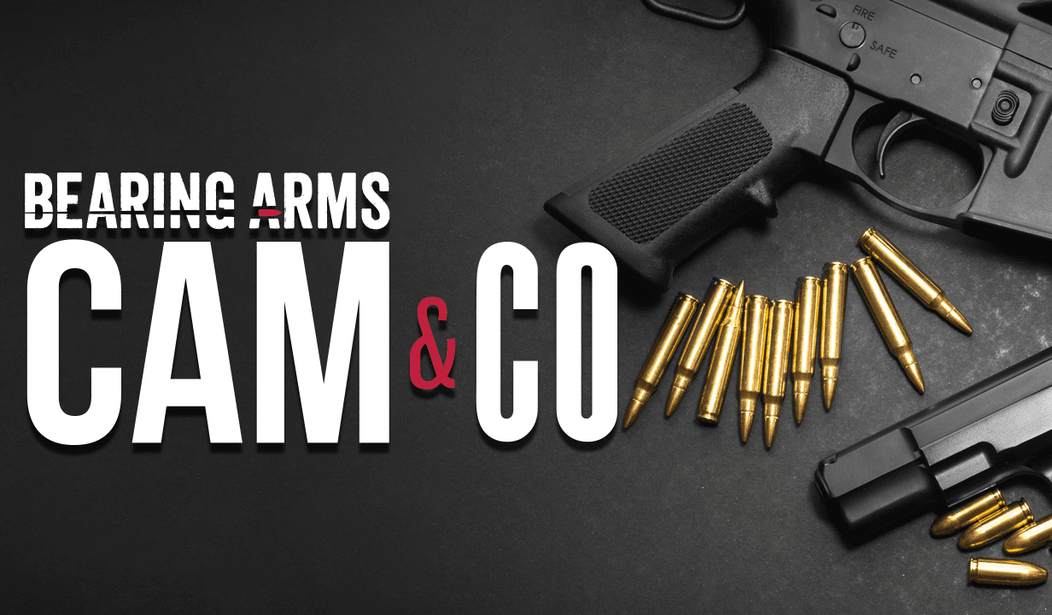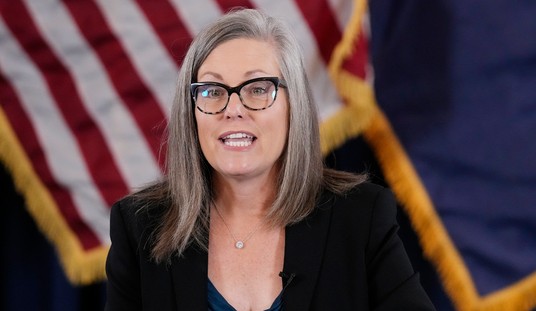U.S. District Judge Consuela Marshall has been hearing cases for more than 40 years after being appointed to the bench by then-president Jimmy Carter in 1980, and her decision in McDougall v. County of Ventura, California may very well be the worst of her long career on the bench.
This week Marshall ruled that Ventura County’s 48-day shutdown of gun stores and ranges as “non-essential businesses” during the early days of the COVID pandemic didn’t violate the Second Amendment rights of county residents; a decision that could have far-reaching consequences, potentially leading to even more open-ended shutdowns based on “public health” emergencies in the future.
In order to reach her conclusion, Marshall twisted both the Bruen decision and U.S. history, implausibly claiming that the COVID pandemic in 2020 was the type of “unprecedented societal concern” that allows for “a more nuanced approach” to the Supreme Court’s history, text, and tradition test. Given that the United States and its inhabitants have had to deal with smallpox outbreaks, malaria, cholera, and the 1918 influenza epidemic (just to name a few) without localities or governments completely curtailing access to acquire a firearm or ammunition (as Ventura County did with its “Stay Well Order”, it’s implausible to sincerely believe that COVID represented an “unprecedented” concern or that the county’s order comports with the text, history, and tradition of regulating the right to keep and bear arms.
Marshall stretched the bounds of credulity even further by contending that several 18th and 19th-century ordinances that did not prohibit the acquisition of firearms and ammunition somehow serve as analogues to Ventura County’s ordinance.
These laws include statutes conditioning gun ownership on the owner taking an oath of loyalty to the state (e.g., Act of Mar. 14, 1776, ch. VII, 1775-1776 Mass. Acts 31; Act of Apr. 1, 1778, ch. LXI, § 5, 1777- 1778 Pa. Laws 123, 126), regulating the possession and storage of gunpowder (e.g., Act of June 26, 1792, ch. X, 1792 Mass. Acts 208 (addressing the carting and transporting of gunpowder in Boston); Act of Apr. 13, 1784, ch. 28, 1784 N.Y. Laws 627 (concerning the storage of gunpowder); Act of Dec. 6, 1783, ch. MLIX, 11 Pa. Stat. 209), limiting the carrying of concealed weapons (e.g., Act of Mar. 18, 1859, 1859 Ohio Laws 56 (prohibiting the carrying of concealed weapons); Act of Oct. 19, 1821, ch. XIII, 1821 Tenn. Pub. Acts 15; Act of Feb. 2, 1838, 1838 Va. Acts ch. 101, at 76 (preventing the carrying of concealed weapons), and prohibiting weapons in certain circumstances (e.g., § 6, 1831 Ohio Laws at 162.). These statutes make clear the Nation’s historical tradition of firearm regulations.
Those statutes do no such thing. Just because an ordinance was put in place doesn’t mean that it was widespread or longstanding as opposed to historical outliers, but Marshall seems to have accepted the state’s argument at face value without putting much thought or consideration about how closely they resemble Ventura County’s “Stay Well Order.” Marshall also claims that the open-ended order (which ended up being in place for 48 days) is somehow comparable to California’s ten-day waiting period on firearm transfers, but her most bizarre assertion is that the closing of gun shops and ranges didn’t prevent Ventura County residents from accessing their right to acquire a firearm.
Notably, the Stay Well Order does not “ban or prohibit anyone from keeping or bearing arms for self-defense in the home or in public.” Nor does the Stay Well Order “regulate the purchase, sale, storage, possession, or use of firearms in anyway; it merely required all nonessential businesses to close during the early weeks of the COVID-19 pandemic.”
… COVID-19 presented a public health emergency to which the County of Ventura responded by mandating ordinances for the safety of others. The Stay Well Order did not prohibit the right to bear arms. Rather, the Stay Well Order affected the activity of businesses deemed to be nonessential under the circumstances of the pandemic. Notably, the Stay Well Order allowed for “essential activities” which included “activities” and “tasks essential to [the people’s] health and safety, or to the health and safety of their family or household members.” Under the terms of the Stay Well Order, Plaintiffs were not prohibited from making arrangements for taking possession of firearms previously purchased or purchasing a firearm through other means.
Baloney. With gun stores shut down there was no other way for customers to take possession of firearms that were previously purchased but were within that 10-day waiting period window when the Stay Well Order was handed down. And as Second Amendment attorney Kostas Moros pointed out on social media, under California law every transfer of a firearm must go through an FFL, so the closure of gun stores in the county precluded any potential gun owner from acquiring a firearm unless they were willing or able to drive to a county that hadn’t imposed such draconian mandates on FFLs.
California doesn't allow private sales outside of an FFL. By closing the gun stores, there was literally no way to purchase or sell firearms legally. https://t.co/yKdre5Z1Y7
— Kostas Moros (@MorosKostas) August 2, 2023
According to Marshall that’s all irrelevant.
What makes her decision so dangerous is that, using her own twisted logic, counties in California could declare a “public health emergency” based on “gun violence” and use that to order “non-essential businesses” to remain closed as long as the emergency was in place, while deeming those establishments that sell firearms and ammunition or offer firearms instruction and training, to be the “non-essential” businesses subjected to a shut down.
Whether or not another federal judge would go along with Marshall’s argument is an open question, but I’m sure there are plenty of anti-gun politicians who’d be willing to roll the dice and take their chances if they thought it would be beneficial to their political futures.
A right delayed is a right denied, and an open-ended closure of every FFL in the county did have a chilling effect on the Second Amendment rights of Ventura County residents. It’s unclear whether the coalition of 2A groups who filed suit will appeal Marshall’s decision, but I hope that the judge doesn’t get the last word when it comes to the county’s 48-day infringement on a fundamental civil right.









Join the conversation as a VIP Member